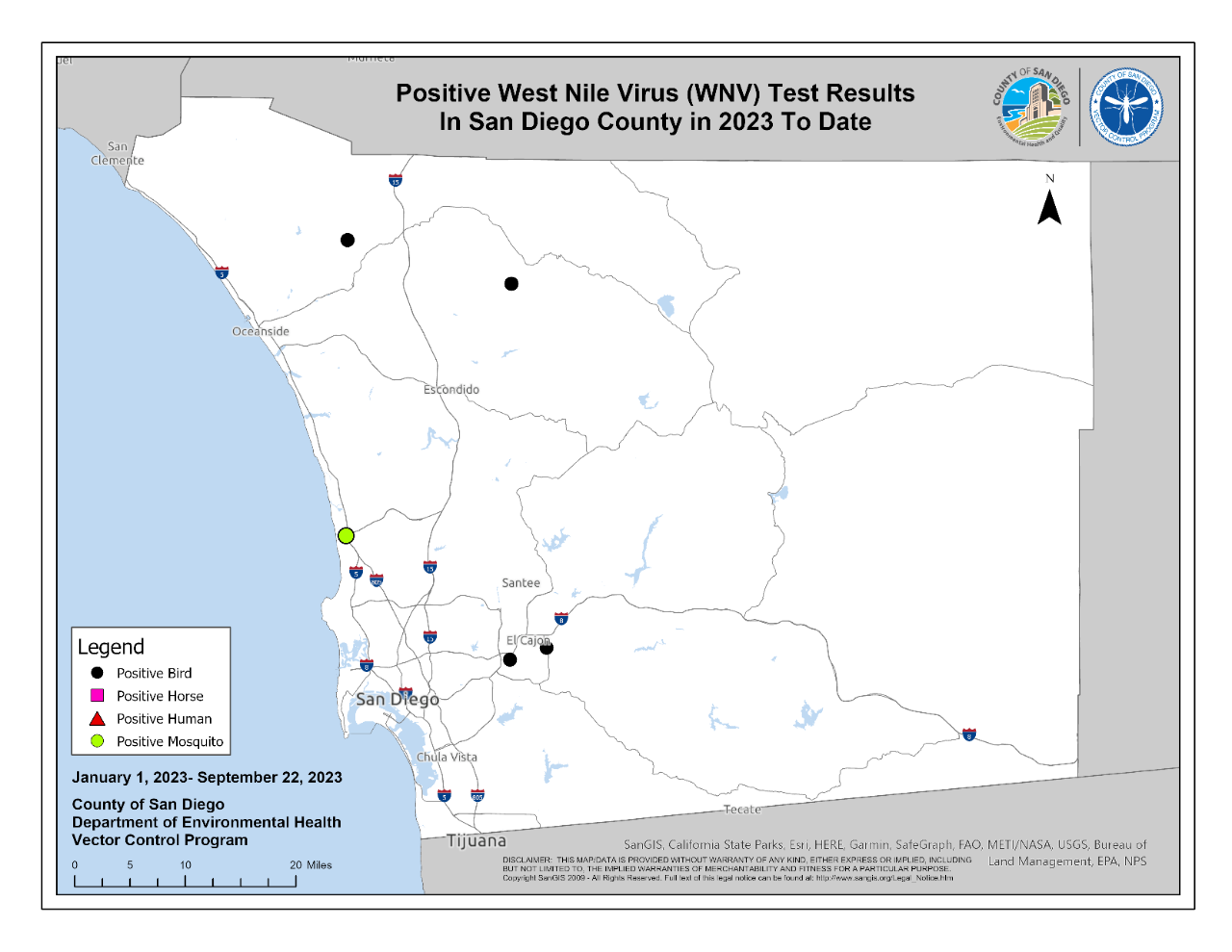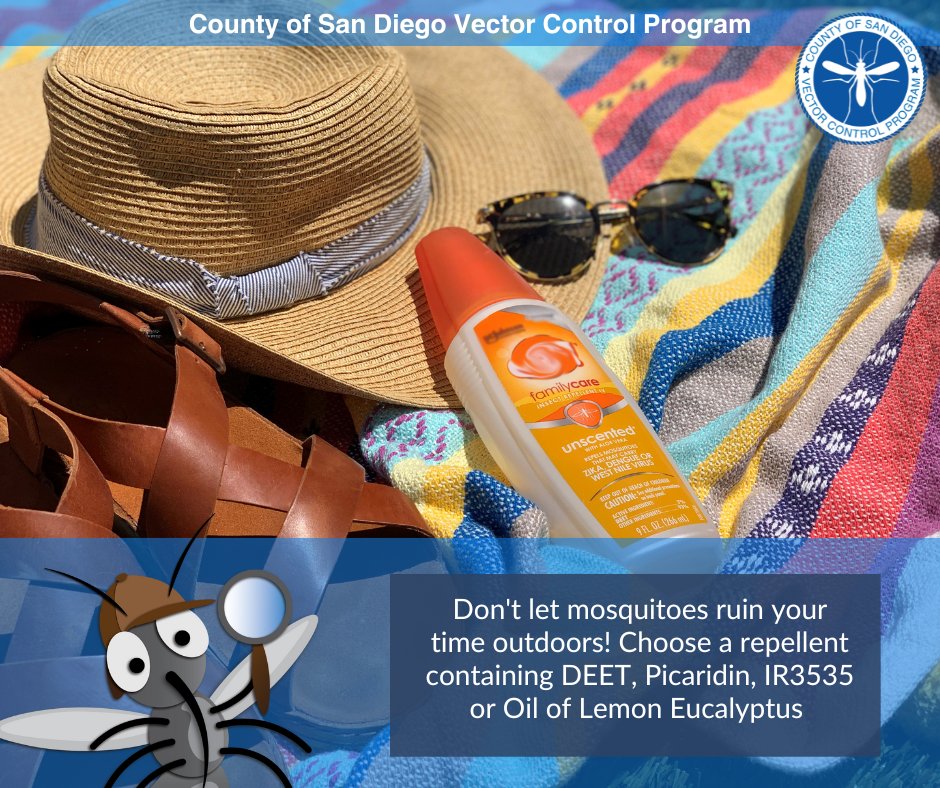Mosquito Alert: West Nile Virus Detected

Mosquitoes collected from the north end of Los Peñasquitos Lagoon, near Del Mar and parts of San Diego, have tested positive for West Nile virus. County environmental health officials are urging residents to take precautions against these disease-carrying mosquitoes.
This marks the first sign of West Nile virus in local mosquitoes this year, but there have been no reported cases of humans contracting the virus in our area.
About West Nile Virus
West Nile virus (WNV) is a mosquito-borne virus that causes disease in humans, horses, and birds. In nature, WNV cycles between mosquitoes (especially Culex mosquitoes) and birds. Mosquitoes become infected by biting infected birds. Mosquitoes infected with WNV can then bite and infect more birds or can bite and infect accidental hosts like people and horses. WNV can make people and horses sick and can even cause death.
The Vector Control Program (VCP) monitors WNV by trapping and testing mosquitoes and by collecting and testing dead birds. VCP also protects public health by controlling mosquitoes that can transmit WNV, and by educating the public on measures they can take to keep themselves and their families safe from WNV and other mosquito borne diseases.
Click here for the County's update-to-date information regarding the West Nile Virus in San Diego County
Aerial Mosquito Larvicide Applications
To better protect our communities and the environment, the Vector Control Program (VCP) applies mosquito larvicide via helicopter to mosquito breeding areas that cannot be treated by hand. These aerial applications occur every three to four weeks during the mosquito breeding season, generally April to October, or as needed.
The granular larvicides used by the Vector Control Program act specifically on mosquito larvae and will not harm people, pets, plants, or wildlife. The larvicide consists of granules containing Lysinibacillus (Bacillus) sphaericus, Bacillus thuringiensis israelensis, and/or Saccharopolyspora spinosa products. These naturally occurring bacteria target mosquito larvae and prevent them from developing into biting adults.
Learn more about the County's Aerial Mosquito Larvicide Applications!
How to Fight the Bite!
The Vector Control Program encourages everyone to prevent mosquito breeding, protect themselves against mosquito bites, and to report green pools, dead birds, and high mosquito activity. To safeguard your health and well-being, please remember to follow the County's "Prevent, Protect, Report" guidelines:
1. Prevent Mosquito Breeding:
- Eliminate standing water around your home by emptying items like plant saucers, rain gutters, buckets, garbage cans, toys, old tires, and wheelbarrows.
- Consider using mosquito fish, available for free through the Vector Control Program, to control breeding in backyard water sources such as stagnant swimming pools, ponds, fountains, and horse troughs.
- Find out more on how to Prevent Mosquito Breeding!
2. Protect Yourself from Mosquito Bites:
- When outdoors, wear long sleeves and pants or apply insect repellent.
- Choose repellents containing DEET, picaridin, oil of lemon eucalyptus, or IR3535.
- Ensure that screens on windows and doors are in good condition and properly secured to keep insects out.
- Find out more on how to Protect Yourself from Mosquito Bites!
3. Report Mosquito Activity and Dead Birds:
- If you observe increased mosquito activity or come across stagnant, green swimming pools and other potential mosquito-breeding sources, please report them to the Vector Control Program at (858) 694-2888 or email vector@sdcounty.ca.gov.
- Additionally, report any dead crows, ravens, jays, hawks, or owls to environmental health.
- Learn more ways to Contact The Vector Control Program.
For comprehensive information on protecting yourself and your community, visit San Diego County's "Fight the Bite" website at SDFightTheBite.com.
Remember, mosquitoes thrive in our area and can carry various diseases, including West Nile virus. Let's work together to keep our community safe and mosquito-free.



